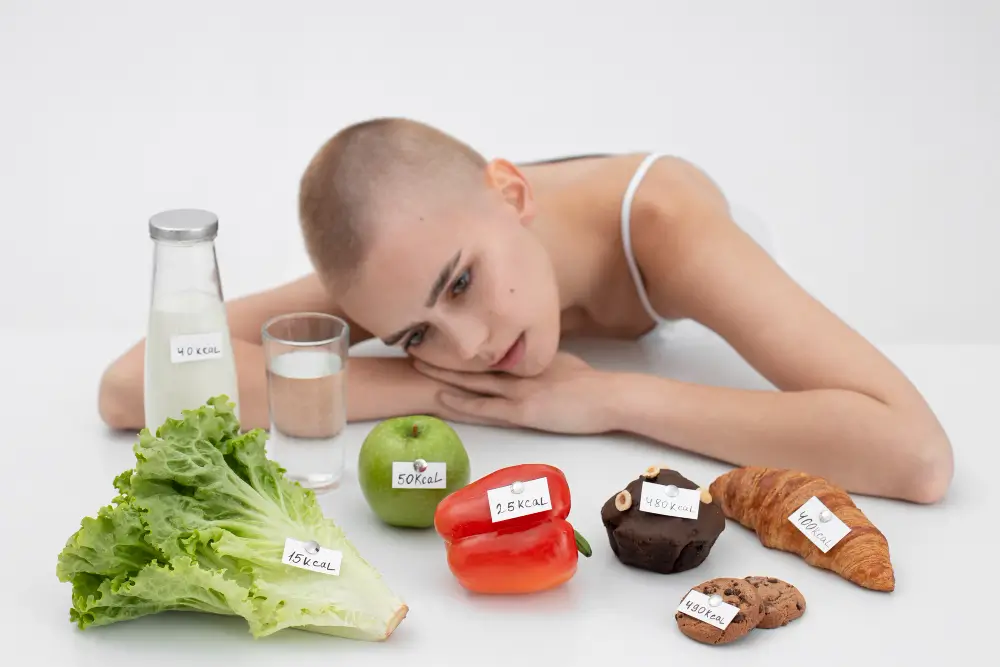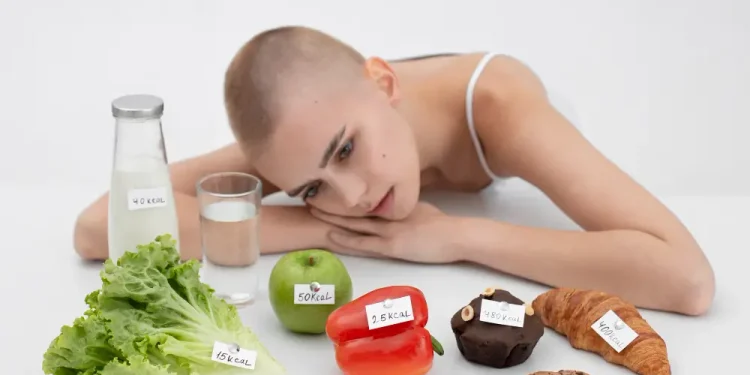Gut-Brain Connection
We know that eating healthy food is good for our bodies. But did you know it’s also good for our gut brain connection? Scientists have been studying how the things we eat can change the way we feel it’s like there’s a secret connection between our stomachs and our brains. In this article, we’re going to take a look at this special connection and how it can make a big difference in how we feel it on daily basis.
Think of your body as a large puzzle. One part is your stomach, which is where food goes when you eat. The other part is your brain, which allows you to think and feel. Scientists discovered that these two parts are linked in a unique way. They refer to it as the “gut-brain connection.” It’s like a highway that lets messages travel between your stomach and your brain.
For many years, people believed that what they ate only affected their bodies. But we are now realizing that it also impacts your brain. Consider eating foods that promote health such as fruits and vegetables. These meals include specific ingredients that can help your brain function better. They can improve your mood and energy levels.
consuming unhealthy meals such as sugary snacks or oily fast food, might have the opposite impact. These meals may cause you to feel tired or depression. They can even make it difficult for you to think properly.

So what you eat isn’t just about keeping your body healthy. It’s also about maintaining brain health. That’s why it’s important to choose foods that are good for both your body and your mind. By making healthy choices you can feel better and think better too. So let’s take a closer look at how the things we eat can affect how we feel every day.
The Gut Microbiota is Your Second Brain?
The Connection Between the Gut and the Brain
The gut-brain connection is like a special road that connects our stomachs and our brains. It’s known as the gut-brain link. Messages may always be sent in both directions between our gut and our brain through this path.
In our gut, there are tiny living things called gut microbiota. They’re like tiny helpers that live inside us. Then, there’s something called the enteric nervous system (ENS). It’s like a mini-brain that lives in our gut. Finally, there’s the central nervous system (CNS) in our brain.
These three things, the gut microbiota, the ENS, and the CNS, are always talking to each other. They don’t just talk about digestion. They also talk about how we feel, how we think, and how we behave.
It’s pretty amazing! This connection between our gut and our brain affects everything from our mood to how well we can think. So, when our stomachs feel good, our brains feel good too. And when our brains feel good, the rest of us feels good too. That’s why it’s important to take care of our stomachs and eat foods that are good for us. By doing that we can help keep our gut-brain connection strong and healthy.

| IN SUMMARY The gut-brain connection is like a special pathway that links our stomachs and brains. Inside our gut there are tiny helpers called gut microbiota and a mini-brain called the enteric nervous system (ENS). They talk to our brain’s central nervous system (CNS) about how we feel, think, and behave, not just digestion. When our stomachs feel good, our brains feel good. So it’s important to take care of our stomachs by eating healthy foods to keep this connection strong and our overall well-being in check. |
The Role of Diet in Mental Health
The food we eat can affect how we feel mentally. While our genes and the environment are important for mental health, what we eat also has an important role to play. Eating a lot of processed meals, sweets, and harmful fats can make us feel terrible. This can cause inflammation and stress in our bodies, affecting mental health issues such as depression and anxiety.
On the other hand, eating healthy foods like fruits, vegetables and foods with omega-3 fatty acids can make us feel better. These foods are full of good stuff that helps our brains work well. They can improve our mood and how well we can think. When we eat these kinds of foods they help our gut bacteria stay healthy. And when our gut bacteria are happy our brains are happy too.
Choosing eating healthy meals can help us maintain our mental health. It’s like giving our brains the fuel they need to work properly. When our brains are feeling good the rest of us generally feel good as well. So the next time you’re deciding what to eat, think how it will make you feel both mentally and physically.

| IN SUMMARY The food we eat can affect how we feel mentally. Eating too much processed food and sweets can make us feel bad and also which leads to problems like anxiety and depression. But eating healthy foods like fruits, veggies, and omega-3 rich foods can make us feel better. These foods help our brains work well and improve our mood and thinking. When we eat healthy our gut bacteria are happy, which makes our brains happy too. So choosing to eat healthy meals can keep our mental health in check and make us feel good overall. |
The Gut Microbiota: Your Second Brain?
Our gut has a lot of tiny living things inside called the gut microbiota. They’re like a big community of tiny organisms that live in our digestive system. These little guys do a lot of important jobs like helping our bodies make chemicals called neurotransmitters. These chemicals help our brains send messages to the rest of our bodies. They also help our immune system work properly and keep inflammation under control. And all of these things can affect how we feel in our minds.
When the balance of these tiny organisms gets messed up, it’s called dysbiosis. This can happen for lots of reasons like eating unhealthy foods or taking certain medications. When dysbiosis happens it can increase the chances of having mental health problems like feeling sad or anxious.
But there’s good news too! Researchers have found that by helping to restore the balance of these tiny organisms, we can actually make ourselves feel better. Things like taking probiotics which are supplements that have good bacteria in them, or making changes to our diets can help. Studies have shown that these methods can improve mood and even make symptoms of depression and anxiety go away.
So it seems like our gut microbiota might work similar to our second brain. They do a lot of important things that can affect how we feel in our minds. And by taking care of them we may also improve our mental health. It’s just another reminder of the importance of eating well and taking care of our bodies both inside and out.

| IN SUMMARY Inside our gut there are tiny living things called gut microbiota, sort of like a community of tiny organisms. They help make chemicals that our brains use to send messages and keep our immune system in check. When these organisms get out of balance it can mess with our mental health making us feel sad or anxious. But we can help by taking probiotics or eating better. Studies show that fixing this balance can improve our mood and even help with depression and anxiety. So taking care of our gut bacteria is important for our mental health too. |
Practical Steps for a Healthy Gut and Mind
To keep your gut healthy and your mind feeling good, there are some simple things you can do every day. Let’s take a look at some easy steps you can take to support both your gut and your mental health.
- Try to eat foods that are as close to their natural form as possible. These are known as whole, unprocessed foods. They provide beneficial nutrients such as fiber, vitamins, and minerals that your body requires to function properly. Fruits, vegetables, whole grains, and lean meats are all examples of whole foods that can benefit your gut health.
- Consider about contain more foods that ferment in your diet. These are foods that go through fermentation, showing the presence of good bacteria. Fermented foods include things like kraut, kefir, and yogurt. These beneficial bacteria can support the balance and health of the bacteria in your gut.
- Don’t forget about omega-3 fatty acids these are healthy fats that are really good for your brain. You can find them in foods like fatty fish (like salmon and mackerel), flaxseeds, and walnuts. Adding these foods to your diet can help support your brain health and keep your mind feeling sharp.
- try to limit your intake of processed foods, sugar, and unhealthy fats. These foods can cause inflammation and oxidative stress in your body, which can make your gut and your mind feel not so great. Instead focus on eating High-nutrient foods that will nourish your body and keep you feeling your best.
- And last but not least, don’t forget to drink plenty of water throughout the day. Staying hydrated is important for digestion and cognitive function. Aim to drink at least eight glasses of water a day and more if you’re active or it’s hot outside.
By following these simple dietary strategies you can help support both your gut and your mental health. Remember, small changes can add up to big benefits over time. So start applying these healthy habits into your daily routine today and feel the difference it can make in how you feel both inside and out.

| IN SUMMARY Here are some easy steps to keep your gut and mind healthy
By following these steps, you can support both your gut and mental health can make you feel better inside and out. |
Here are Some Resources for More Information
- National Institute of Mental Health (NIMH): Provides comprehensive information on mental health research, including studies related to diet and mental well-being. NIMH
- Harvard Health Publishing – Nutrition and Mental Health: Harvard Medical School offers insights into the connection between nutrition and mental health. Harvard Health Publishing
- Mayo Clinic – Probiotics: Information on probiotics, their benefits, and how they can improve gut health. Mayo Clinic – Probiotics
- World Health Organization (WHO) – Healthy Diet Factsheet: WHO provides guidelines for a healthy diet and its impact on overall health, including mental well-being. WHO – Healthy Diet Factsheet
- Psychology Today – The Gut-Brain Connection: Explains the intricate relationship between gut health and mental well-being. Psychology Today – The Gut-Brain Connection
In Last
As our understanding of the connection between the gut and the brain continues to evolve, it is becoming increasingly clear that nutrition plays a key role in shaping our mental health. By nourishing our bodies with healthy foods that support gut health, we not only take care of our physical health, but also our emotional and cognitive life. So the next time you sit down to eat, remember that you’re not just feeding your body, you’re also feeding your mind. Make wise choices and focus your diet on your mental health journey.












